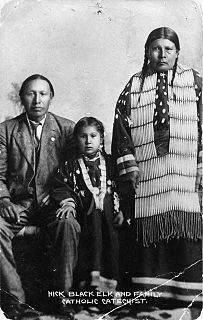A Quote by Francis Chan
Life is about Jesus. We are not here to tell our story, but His.
Related Quotes
How often do we tell our own life story? How often do we adjust, embellish, make sly cuts? And the longer life goes on, the fewer are those around to challenge our account, to remind us that our life is not our life, merely the story we have told about our life. Told to others, but — mainly — to ourselves.
As Paul says, even though we as human beings know God, we refuse to acknowledge him. That's what Peter did. He refused even to "know" Jesus! Peter's failure reflects all our failure. It forces us to face the reality about ourselves. But the point of the story is that Jesus foretold this - he knew it was coming. And Jesus forgave Peter, when Peter confessed his love for Jesus. So the story illustrates both the horrible nature of sin, and the amazing reality of grace. That's essential to the whole meaning of the gospel.
We have endless books about whether Jesus existed, or whether the Jesus we have learned about is really accurate and historical or mythical. We have endless complicated tracts on fine technical issues, but we don't explore Jesus' way to happiness and peace, or try to understand his feelings about God and creation of how he views our relationship with God, or his attitude toward human weakness. Understanding these things could help us immensely in our own search for inner peace and a meaning to life.
I wrote The Jesus Storybook Bible because I wanted children to know the Bible isn't mainly about you and what you're supposed to be doing. It's about God and what he has done. It's the story of how God loves his children and comes to rescue them. It's a Love Story. It's an Adventure Story. And at the center of the story is a baby - the child upon whom everything would depend. And every single story in the Bible whispers his name.
Who is Jesus to me? Jesus is the Word made Flesh. Jesus is the Bread of Life. Jesus is the Victim offered for our sins on the cross. Jesus is the sacrifice offered at holy Mass for the sins of the world and for mine. Jesus is the Word - to be spoken. Jesus is the Truth - to be told. Jesus is the Way - to be walked. Jesus is the Light - to be lit. Jesus is the Life - to be lived. Jesus is the Love - to be loved
This is our story to tell. You’d think for all the reading I do, I would have thought about this before, but I haven’t. I’ve never once thought about the interpretative, the story telling aspect of life, of my life. I always felt like I was in a story, yes, but not like I was the author of it, or like I had any say in its telling whatsoever.
This kingdom of God life is not a matter of waking up each morning with a list of chores or an agenda to be tended to, left on our bedside table by the Holy Spirit for us while we slept. We wake up already immersed in a large story of creation and covenant, of Israel and Jesus, the story of Jesus and the stories that Jesus told. We let ourselves be formed by these formative stories, and especially as we listen to the stories that Jesus tells, get a feel for the way he does it, the way he talks, the way he treats people, the Jesus way.
A story must be told in such a way that it constitutes help in itself. My grandfather was lame. Once they asked him to tell a story about his teacher. And he related how the holy Baal Shem used to hop and dance while he prayed. My grandfather rose as he spoke, and he was so swept away by his story that he himself began to hop and dance to show how the master had done. From that hour he was cured of his lameness. That's how to tell a story.
Our reasons for believing Jesus existed and also that He was who He claimed to be - the God who came down - are the same reasons for believing any fact of history: the documentation is substantial and it passes all the tests of historical reliability. Scholars - both liberal and conservative - overwhelming agree that Jesus of Nazareth was a man of history and the Gospels, on the main, tell His story accurately.
We take it for granted that Jesus was not interested in political life: his mission was purely religious. Indeed we have witnessed . . . the 'iconization' of the life of Jesus: 'This is a Jesus of hieratic, stereotyped gestures, all representing theological themes. In this way, the life of Jesus is no longer a human life, submerged in history, but a theological life -- an icon.






































